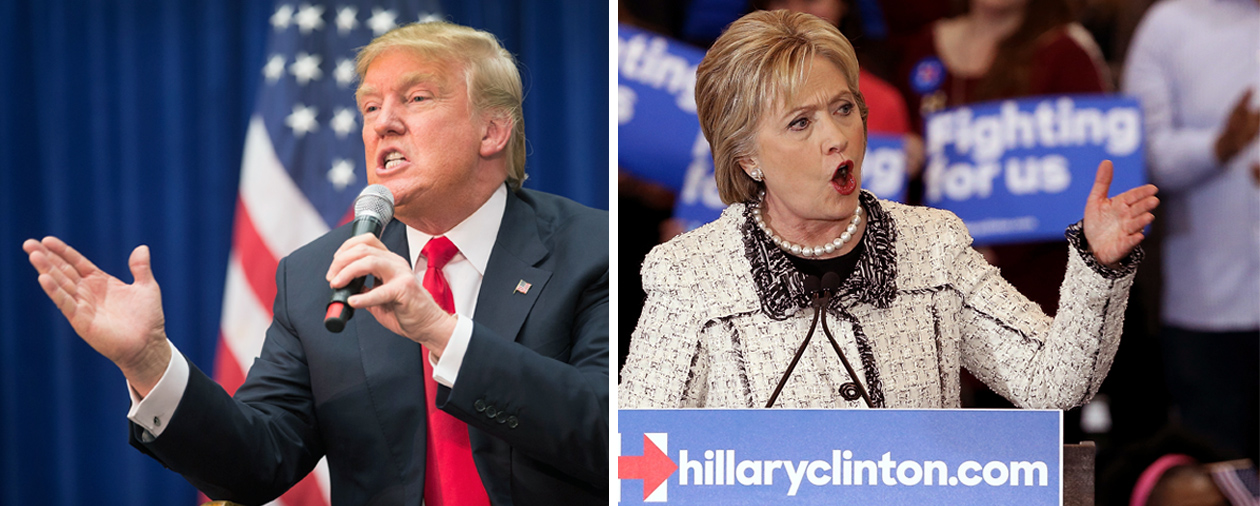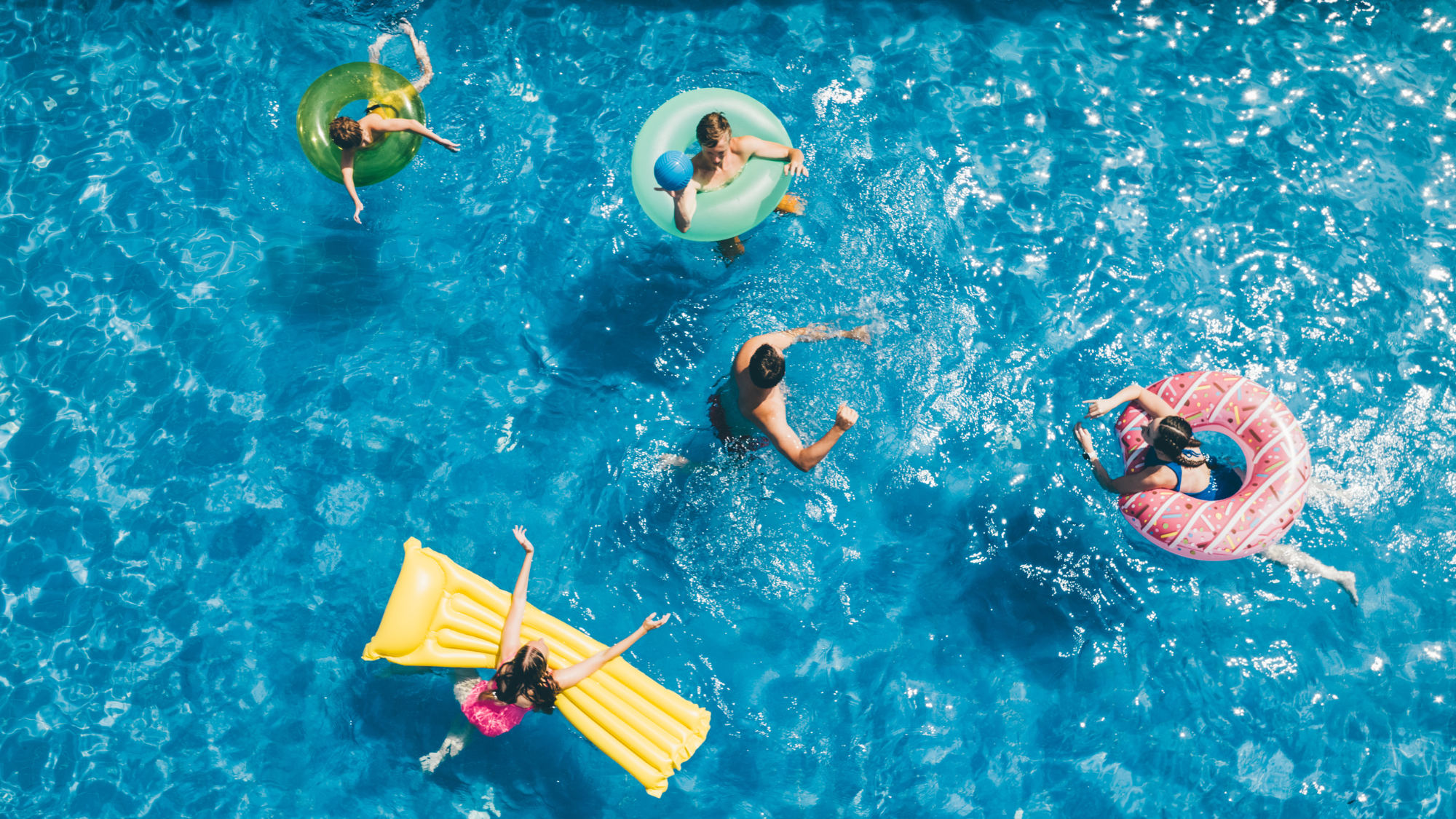This one political theory explains both Donald Trump and Hillary Clinton
It's called the pink police state


In many ways, likely Republican presidential nominee Donald Trump and all-but-assured Democratic nominee Hillary Clinton seem like polar opposites. One is running as the avatar of identitarian atavism. The other is running as the avatar of enlightened, cosmopolitan progressivism. But one of the most fascinating political theories of the past few years actually suggests that Trump and Clinton are two sides of the same coin.
This theory, which is the brainchild of my colleague James Poulos, is called the "pink police state."
In a democracy, the pink police state is what happens when people start to value their interpersonal freedoms more than their political freedoms. When that happens, people enlist the state to help them achieve their interpersonal goals, even if that means curtailing their civil liberties. The role of government is no longer to secure political rights, but to secure personal flourishing — a striking departure from the vision of government inherited from the Enlightenment on which our governments are supposed to be based.
The Week
Escape your echo chamber. Get the facts behind the news, plus analysis from multiple perspectives.

Sign up for The Week's Free Newsletters
From our morning news briefing to a weekly Good News Newsletter, get the best of The Week delivered directly to your inbox.
From our morning news briefing to a weekly Good News Newsletter, get the best of The Week delivered directly to your inbox.
Contemporary progressivism fits the pink police state bill pretty well. Perhaps the paradigmatic example is ObamaCare's contraception mandate, which Clinton fully supports. Even though America had no discernible problem with contraception access, it was still deemed necessary to turn contraception into an entitlement. And if in the process you had to cut corners into the First Amendment, well, so be it.
In the pink police state, Poulos says, the most important defining line in our society is no longer the line between public and private, but the line between health-safety and sickness-danger. What citizens demand from the state is health and safety, and that means the state must be involved in our private lives. And if the state must guarantee our safety at any cost, well, it must do so.
The pink police state, in Poulos' telling, is the product of a culture where people have given up on governing themselves and their impulses and turn to technocrats to shield them from the consequences of inevitable bad behavior.
With her combination of authoritarian impulses, demonstrated willingness to cut corners to get the outcome she prefers, and her performance of motherly concern for the health and autonomy of everyone, Clinton is a walking incarnation of the pink police state. As Poulos writes, the pink police state is no longer Big Brother, but Big Nurse...a Nurse Ratched kind of nurse.
A free daily email with the biggest news stories of the day – and the best features from TheWeek.com
But what about Trump? Well, what is his campaign based on if not the health-safety/sickness-danger divide at the heart of the pink police state? Trump promises free health care that takes care of everyone. He's going to keep us safe from terrorists, from globalization, and from Mexican rapists. Indeed, with his combination of long-standing authoritarian impulses in politics, and a proudly debased sexual life, Trump is an avatar of the pink police state almost as much as Hillary is.
Or consider gender politics. On the surface, Clinton's expressive feminism looks like the polar opposite of Trump's crude misogyny. But both appeal to people who deeply desire to face no consequences for their sexual behavior. I'm very far from a fan of the conservative idea that what progressives want is just "consequence-free sex," but it is actually an article of the progressive creed that society should be organized so that no one should face negative consequences from their sexual choices (which, regardless of its morality, also happens to be a practical impossibility). And what appeals so much to Trump's downtrodden male supporters about his macho pose is the idea of male privilege without any of the constraints of chivalry that, at least theoretically, used to attach to that status. In either case, what gets jettisoned is the kind of virtue ethics that the Enlightenment thinkers who bequeathed us the political order to which we supposedly pledge our allegiance believed was necessary for democracy to function.
It's not just Trump and Hillary, of course. The way you know you're in a new regime is because it's everywhere. Marco Rubio, for example, speaking about the commander-in-chief's duty to fight terrorism, once said, "If we're not safe, nothing else matters" — as good a summary of what the pink police state stands for as it gets. Bernie Sanders is obviously just as much in the bag for the pink police state as Hillary — just ask his supporters. And don't tell me John Kasich reminds you of anything more than an overbearing mom who just wants what's best for you. Trump and Hillary are perhaps the most pink police state-like characters in the entire race. But they're hardly the only ones.
Sometimes the hardest thing to notice is the thing that's all around you. And in the case of Trump, and Hillary, and our contemporary politics, that thing is the pink police state.
Pascal-Emmanuel Gobry is a writer and fellow at the Ethics and Public Policy Center. His writing has appeared at Forbes, The Atlantic, First Things, Commentary Magazine, The Daily Beast, The Federalist, Quartz, and other places. He lives in Paris with his beloved wife and daughter.
-
 What is at stake for Starmer in China
What is at stake for Starmer in ChinaToday’s Big Question The British PM will have to ‘play it tough’ to achieve ‘substantive’ outcomes, while China looks to draw Britain away from US influence
-
 How the ‘British FBI’ will work
How the ‘British FBI’ will workThe Explainer New National Police Service to focus on fighting terrorism, fraud and organised crime, freeing up local forces to tackle everyday offences
-
 The best family hotels in Europe
The best family hotels in EuropeThe Week Recommends Top kid-friendly hotels with clubs, crèches and fun activities for children of all ages – and some downtime for the grown-ups
-
 The billionaires’ wealth tax: a catastrophe for California?
The billionaires’ wealth tax: a catastrophe for California?Talking Point Peter Thiel and Larry Page preparing to change state residency
-
 Bari Weiss’ ‘60 Minutes’ scandal is about more than one report
Bari Weiss’ ‘60 Minutes’ scandal is about more than one reportIN THE SPOTLIGHT By blocking an approved segment on a controversial prison holding US deportees in El Salvador, the editor-in-chief of CBS News has become the main story
-
 Has Zohran Mamdani shown the Democrats how to win again?
Has Zohran Mamdani shown the Democrats how to win again?Today’s Big Question New York City mayoral election touted as victory for left-wing populists but moderate centrist wins elsewhere present more complex path for Democratic Party
-
 Millions turn out for anti-Trump ‘No Kings’ rallies
Millions turn out for anti-Trump ‘No Kings’ ralliesSpeed Read An estimated 7 million people participated, 2 million more than at the first ‘No Kings’ protest in June
-
 Ghislaine Maxwell: angling for a Trump pardon
Ghislaine Maxwell: angling for a Trump pardonTalking Point Convicted sex trafficker's testimony could shed new light on president's links to Jeffrey Epstein
-
 The last words and final moments of 40 presidents
The last words and final moments of 40 presidentsThe Explainer Some are eloquent quotes worthy of the holders of the highest office in the nation, and others... aren't
-
 The JFK files: the truth at last?
The JFK files: the truth at last?In The Spotlight More than 64,000 previously classified documents relating the 1963 assassination of John F. Kennedy have been released by the Trump administration
-
 'Seriously, not literally': how should the world take Donald Trump?
'Seriously, not literally': how should the world take Donald Trump?Today's big question White House rhetoric and reality look likely to become increasingly blurred
